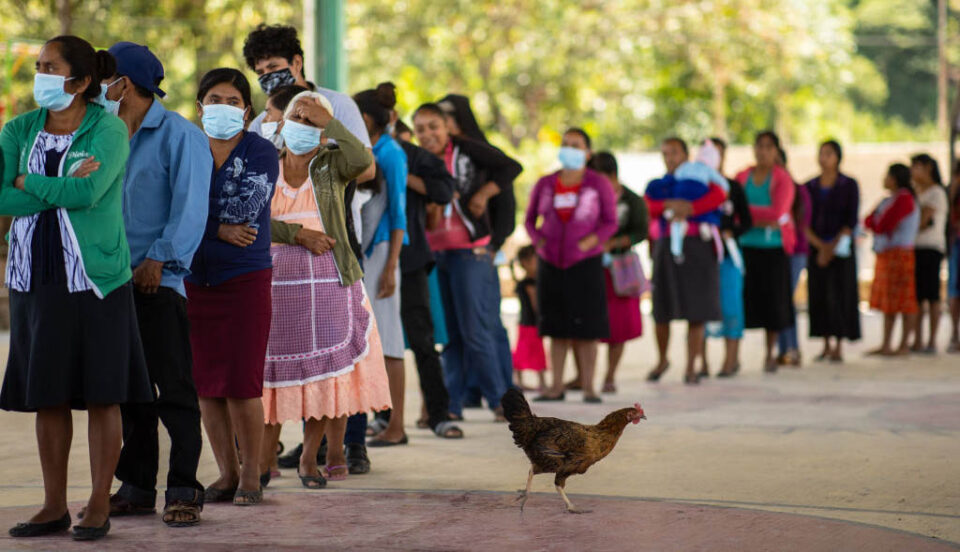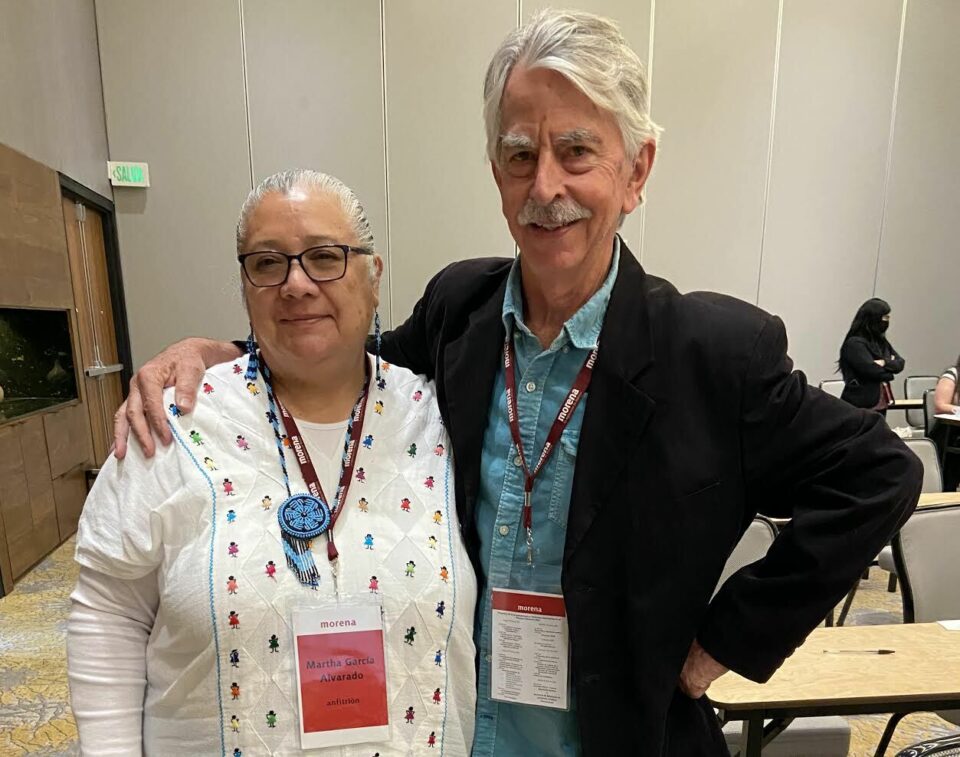The weekly newsletter of the México Solidarity Project

June 9, 2021/ This week’s issue/ Meizhu Lui, for the editorial team
Sometimes we can see our destination straight ahead, but we can’t get there. A one-way street — going in the wrong direction — leaves us thwarted. One-way streets, we’ve all learned, can be obstacles to forward progress.
People in the United States, even many on the US left, seem to see US/México relations as a one-way street. These folks expect Mexicans to be concerned about what’s going on in the US but don’t themselves feel any particular reason to be concerned about what goes on in México.

This past Sunday, Mexicans went to the polls in arguably their most important elections in a century. Previous Mexican governments — under the PRI and PAN parties — had been willing overseers for the neoliberal US agenda, cheerfully cutting the legs out from under workers in both the United States and México. AMLO and Morena, as John Ackerman points out in our Reflections this week, have given México a historic opportunity to bury this agenda. And that prospect has obvious implications for working people in the United States: If México refuses to participate in the race to the bottom, US workers can stop racing as well.
Three years ago, AMLO and Morena ousted the PRI/PAN crowd for the first time in over 70 years, and Sunday represented the first electoral test for Morena as a governing party. But the US press coverage of México’s 2021 elections has essentially ignored the huge differences between the two Mexican electoral coalitions and concentrated more on the murders of local-level candidates where drug cartels hold sway. It still leads if it bleeds.
The less grisly US coverage has, almost universally, taken an “even-handed” approach that’s papered over the election’s high stakes. “On the one hand,” the coverage goes, AMLO has done this good thing, while “on the other hand” he’s made this mistake. This bogus “even-handedness,” this unconscious neocolonialism, seems to infect both the right and the left, with US “experts” breezily passing judgment on AMLO and Morena and thinking we have nothing to learn from them — and nothing at stake in their struggle.
Progressives in México, meanwhile, are working hard to do their part. Did Morena on Sunday repeat its stunning and overwhelming 2018 victory? Not quite. To truly consolidate the party’s progressive agenda, Morena needed to win two-thirds of the seats in the legislative House of Deputies. That two-thirds majority would have enabled Morena to amend the Constitution and make the gains of the last few years irreversible. On Sunday, Morena did win a clear majority of seats, but didn’t reach the two-thirds benchmark.
But Morena activists remain optimistic. The results give Morena progressives the impetus to make needed internal changes to the way the Party operates. In next week’s issue, we’ll have much more analysis on Sunday’s voting.

Bruce Hobson, a México Solidarity Bulletin founder and co-editor, served as an international observer during the June 6 Mexican midterm elections. We interviewed Hobson, here with Martha García Alvarado, the secretary of Mexicans Abroad and International Policy for Morena’s National Executive Committee, on his observer experience just after the voting Sunday.

To read the rest of this exciting bulletin click here!